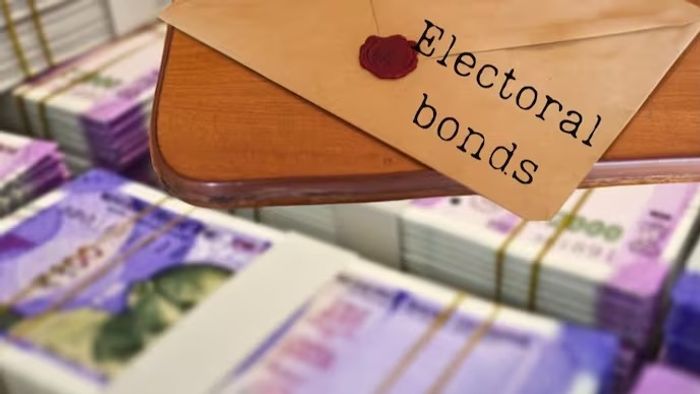BJP receives majority of electoral bonds from firm linked to Delhi liquor case approver
The Bharatiya Janata Party is under scrutiny for receiving a Rs 5 crore donation from Aurobindo Pharma, linked with Sarath Chandra Reddy, an approver in the Delhi liquor policy case. The transactions have led to allegations of BJP's influence over the Enforcement Directorate.

- Mar 24, 2024,
- Updated Mar 24, 2024, 11:46 AM IST
The Bharatiya Janata Party (BJP) has come under scrutiny after it was revealed that the party received a significant donation of Rs 5 crore in electoral bonds from Aurobindo Pharma, a company associated with Sarath Chandra Reddy who is an approver in the Delhi liquor policy case. According to data released by the Election Commission, this donation constituted 66 per cent of the total Rs 52 crore electoral bonds purchased by Aurobindo Pharma.
Reddy who was arrested in November 2022 in connection with the liquor policy case and later turned approver, facilitated the purchase of these bonds. The latest data indicates that the BJP received the majority share of these bonds, with 29 per cent going to the Bharat Rashtra Samithi (BRS) and the remainder to the Telugu Desam Party (TDP).
Of the total Rs 52 crore in electoral bonds purchased by Aurobindo Pharma between April 2021 and November 2023, Rs 5 crore worth of bonds were acquired just five days after Reddy's arrest in 2022. These bonds were then cashed by the BJP shortly after.
In June 2023, a Delhi court granted permission to Reddy who currently serves as the non-executive director of Aurobindo Pharma, to act as an approver in the liquor policy case. Additionally, the court extended a pardon to Reddy in connection with the case.
The revelation of Aurobindo Pharma's electoral bond transactions has sparked controversy, with AAP leader and Delhi Education Minister Atishi alleging that the Enforcement Directorate's actions were influenced by the BJP. Atishi pointed out that the "money trail" specified in the agency's case against Delhi Chief Minister Arvind Kejriwal ultimately led to the BJP through electoral bonds.
The Enforcement Directorate has previously implicated Reddy in the liquor industry, alleging collusion with business figures and politicians involved in the case. The agency claims that Reddy engaged in unfair market practices to exploit the now-scrapped liquor policy.
Aurobindo Pharma, one of the nation's leading pharmaceutical firms, recorded revenues exceeding Rs 24,000 crore in 2023. The company operates globally, with 90 per cent of its revenue derived from international ventures.
The allegations raised by the Enforcement Directorate and the revelations surrounding electoral bond transactions have intensified the ongoing scrutiny of political financing and potential influence in India's electoral process.